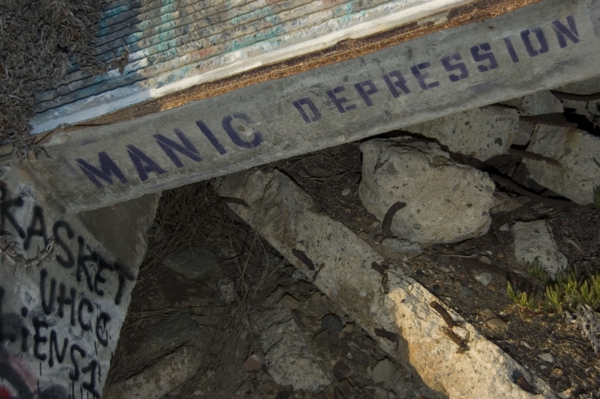What is Manic Depression?
Manic depression – also known as bipolar disorder – is a type of depression that varies between extreme highs and extreme lows. Unlike “traditional depression” (which is characterized by an excessive amount of sadness), manic depression involves severe mood swings, also known as “episodes.” These swings are what make bipolar disorder so unique, and so difficult to understand.
How Bipolar Disorder Manifests
Despite the severity of bipolar disorder, it’s still not entirely understood how the mood swings work. However, the reason that it is referred to as manic depression is because there tend to be two different types of symptoms. The first is mania, and symptoms include:
• Intense energy.
• Inflated self-esteem.
• Racing thoughts.
• Goal seeking.
• Bravery/lack of self-control.
Those in manic episodes may struggle to keep their attention or appear obsessively goal oriented. They may talk very quickly or appear to be jumping from topic to topic without adequately transitioning. They may also engage in activities that are otherwise damaging to their lifestyle or long term mental health with little regard to the consequences (like gambling or shopping). Manic episodes can manifest in different ways by different people, however, so one can be experiencing a manic episode in a way that doesn’t conform to the above symptoms.
Mania is not the only symptom of manic depression either. Those with bipolar disorder also suffer from depressive episodes. These can be very severe, with symptoms including:
• Diminished pleasure or interest in life.
• Recurrent thoughts of death or suicide.
• Extreme fatigue, possibly with hypersomnia.
• Guilt and worthlessness ideations.
• Indecisiveness.
Depressive episodes in manic depression tend to be difficult, and in some cases the depression can become too overwhelming. The highs and lows of manic depression can both be dangerous, which is why it is so important to try to treat the disorder.
Causes of Manic Depression
Researchers are unclear exactly what causes bipolar disorder, especially because the swings in manic depression are unlikely to come from life events alone. Many believe that manic depression is a combination of a variety of factors, some of which are genetic while others are based on life events, stress, and upbringing. It’s known that those with parents that suffered from bipolar disorder are more likely to suffer from bipolar disorder themselves, but that genetics alone cannot be the only cause since not everyone that should have the genetics will ultimately get bipolar disorder.
Types of Bipolar Disorder
There is more than one type of bipolar disorder. Currently there are four disorders that fall under the heading of “manic depression.” These include:
• Bipolar I – Individual suffers from roughly 7 day manic episodes followed by at least two weeks of depressive episodes. Bipolar I may also involve severe, hospitalized manic episodes.
• Bipolar II – Individual suffers from a mix of manic and depressive episodes, generally in short periods of time, but with no “full blown” episodes.
• Bipolar NOS (Not Otherwise Specified) – Mania and depression that do not fall under the categories of Bipolar I or II.
• Cyclothymia – Falls under the family of bipolar disorder but is technically a different disorder where the mania and depression are less severe, but often last for several years.
Diagnosing which type of bipolar disorder you suffer from is an important part of treatment, but treatment is generally similar regardless of the type of disorder.
Finding Treatment for Bipolar Disorder
Rarely do those suffering from bipolar disorder cure the problem on their own. Significant intervention is needed to ensure that bipolar disorder symptoms are minimized, and are prevented from getting worse. Luckily, treatment has come a long way in treating bipolar disorder, but if you believe you suffer from bipolar disorder it is crucial that you are willing to get help in order for treatment to take place.
Ryan Rivera is a mental health expert, that has written a great deal of information on anxiety and depression located at www.calmclinic.com.
photo: http://www.flickr.com/photos/thinmac/3169322583/lightbox/

